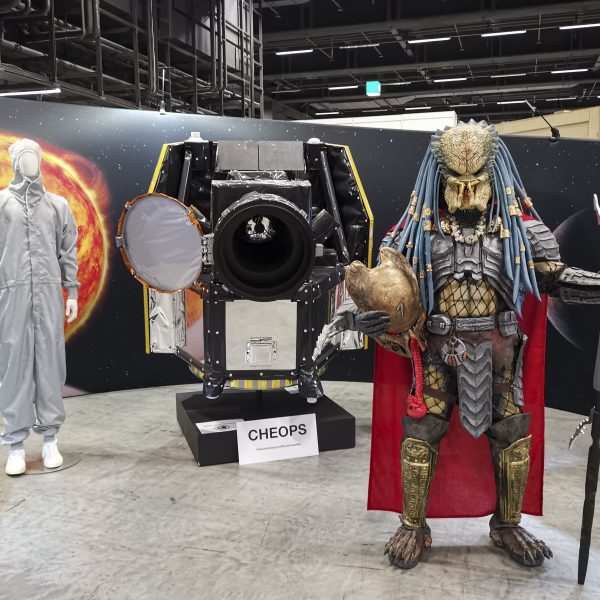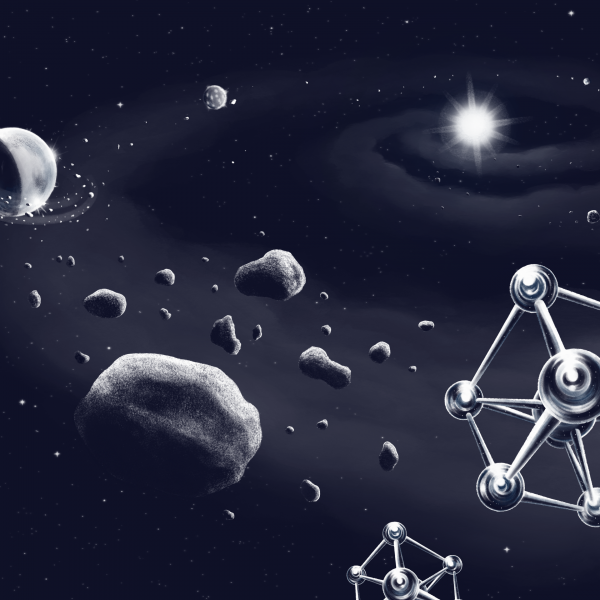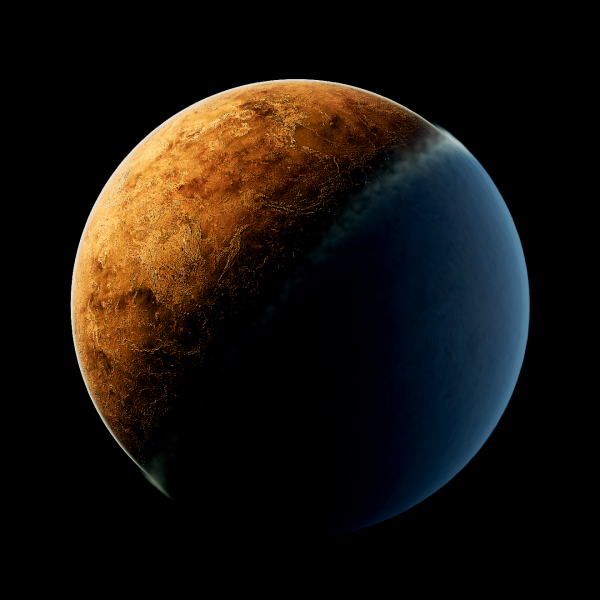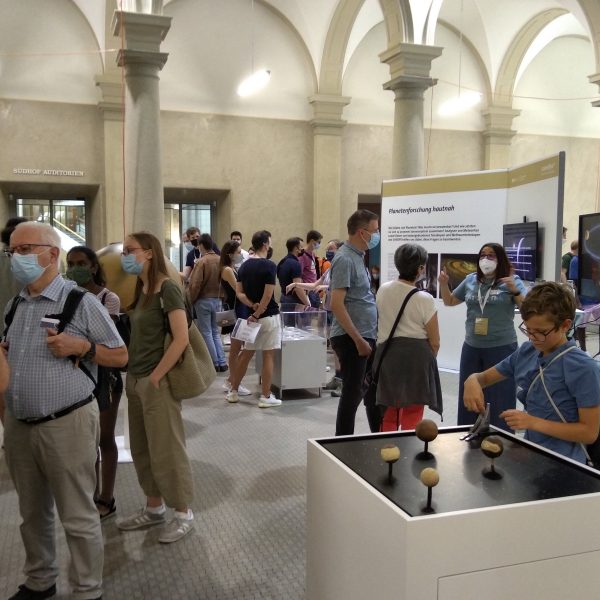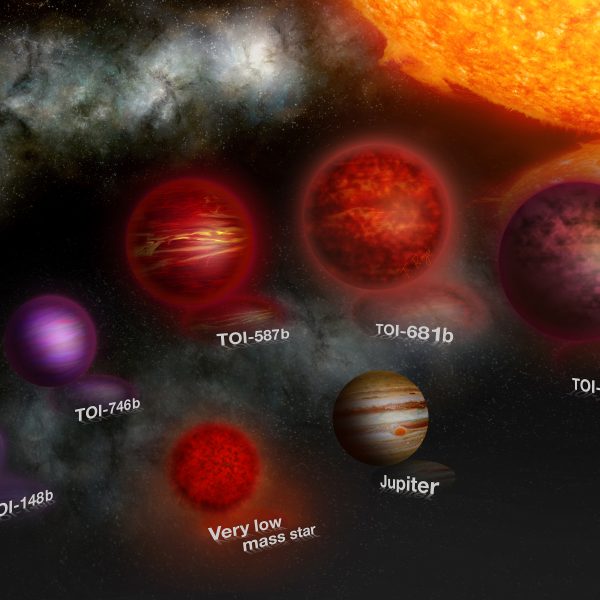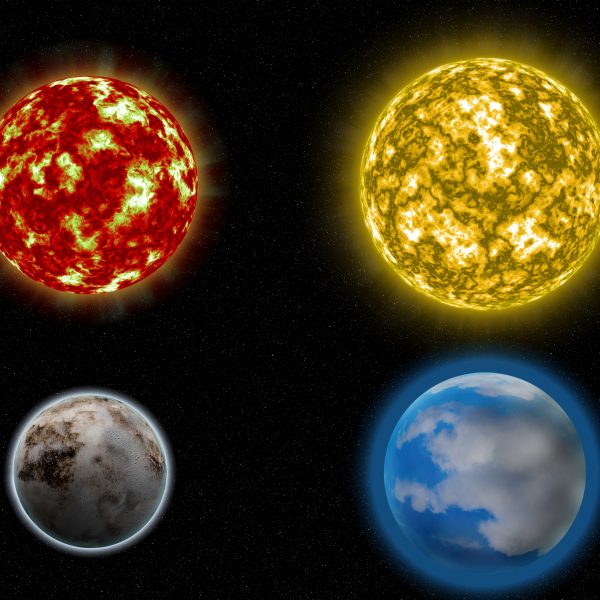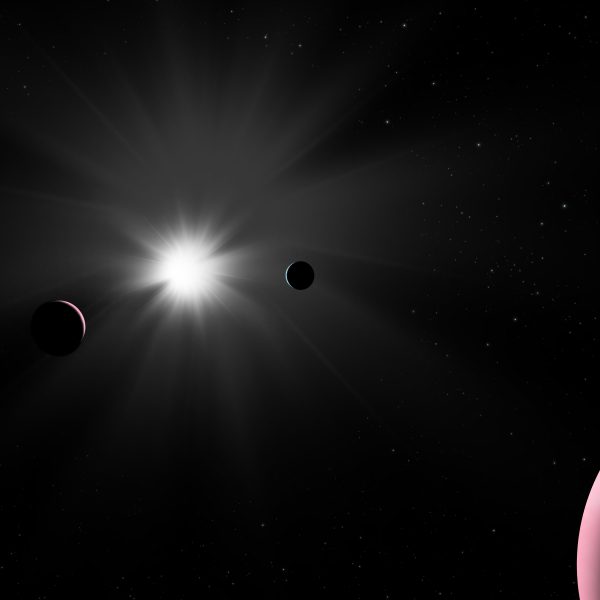News
Where Predator and Pikachu learn about exoplanets
Fantasy Basel is Switzerland’s largest convention for comic culture, science fiction, cosplay and more. Around 45,000 visitors from near and far flocked to the big event to read the latest comics, meet their favourite artists – or to learn about exoplanets and space history at the NCCR PlanetS exhibition, which was part of the Swiss […]
Continue ReadingThe planet does not fall far from the star
A compositional link between planets and their respective host star has long been assumed in astronomy. For the first time now, a team of scientists, with the participation of researchers of the National Centre of Competence in Research (NCCR) PlanetS from the University of Zurich and the University of Bern, deliver empirical evidence to support […]
Continue ReadingDid Venus ever have oceans?
Today’s Venus, with its extreme greenhouse effect, could be considered Earth’s “evil twin”. Yet in its past, it may have been much more hospitable and possibly even had oceans of water. Researchers led by the University of Geneva and the National Centre of Competence in Research (NCCR) PlanetS have simulated the ancient climate of Venus […]
Continue ReadingNotice to future entrepreneurs
There are still a few places available for a workshop for potential future entrepreneurs which will take place in November in virtual form.
Continue ReadingPlanets at Fantasy Basel 2021
PlanetS will be at the Fantasy Basel 2021! The event will take place from the Friday 8th until the Sunday 10th of October. Over 20 scientists from the NCCR PlanetS will attend the event to show you some physics experiments, a collection of meteorites or discuss science with you! In particular, we will have a […]
Continue ReadingThousands of visitors at Scientifica 21
A little girl looks fascinated at the screen and watches as a researcher floats around weightlessly in an airplane. Next to him, his experiment is running, which is supposed to provide data on the early phase of planetary system formation. “If you want to go into space later, you need a spacesuit,” the PlanetS scientist […]
Continue ReadingUnravelling the mystery of brown dwarfs
Brown dwarfs are astronomical objects with masses between those of planets and stars. The question of where exactly the limits of their mass lie remains a matter of debate, especially since their constitution is very similar to that of low-mass stars. So how do we know whether we are dealing with a brown dwarf or […]
Continue ReadingLike star, like planet
One of the patterns emerging from the thousands of exoplanets that astronomers have discovered to date, is that the larger planets often orbit more massive stars. The reason behind it was unknown. A new study led by scientists at the University of Zurich, and members associated with the National Center of Competence in Research (NCCR) […]
Continue ReadingUnique exoplanet photobombs CHEOPS study of nearby star system
While studying two exoplanets in a bright nearby star system, the CHEOPS satellite has unexpectedly spotted the system’s third known planet crossing the face of the star. This transit reveals exciting details about a rare planet “with no known equivalent”, as the scientific team led by the Universities of Geneva and Bern, and members of […]
Continue ReadingLehrperson Volksschule Sekundarstufe 1 (80% für drei Monate*)
Das Stellarium Gornergrat ist das erste pädagogische Teleskop in der Schweiz und in dieser Art einzigartig in Europa. Das Projekt wird von der Universität Bern geleitet und von weiteren Partnern unterstützt. Unsere Ziele sind, die Faszination für Astronomie und Weltraum zu fördern und ein pädagogisches Programm für Lernende, Lehrende, Studierende und die breite Öffentlichkeit unter […]
Continue Reading
